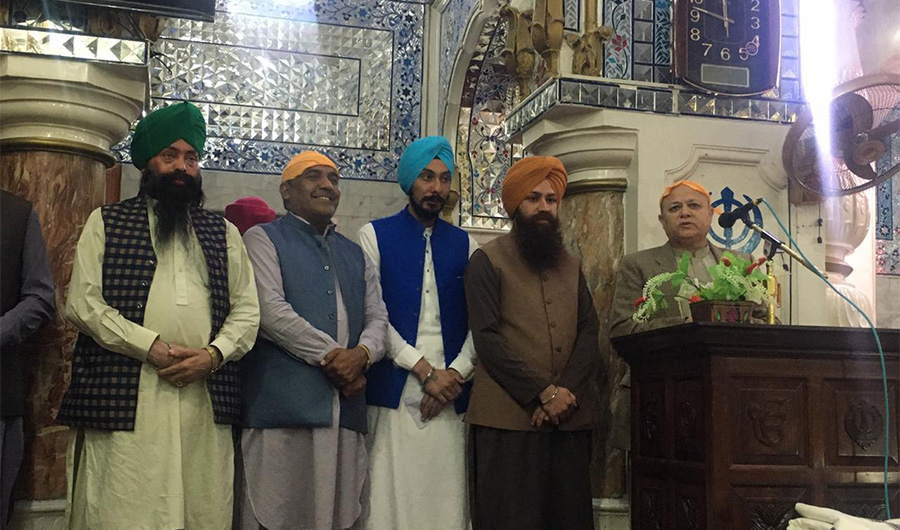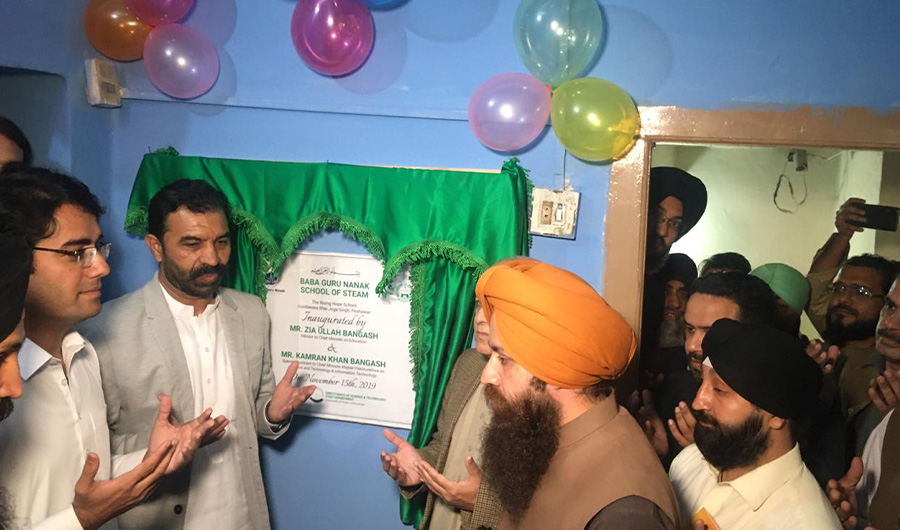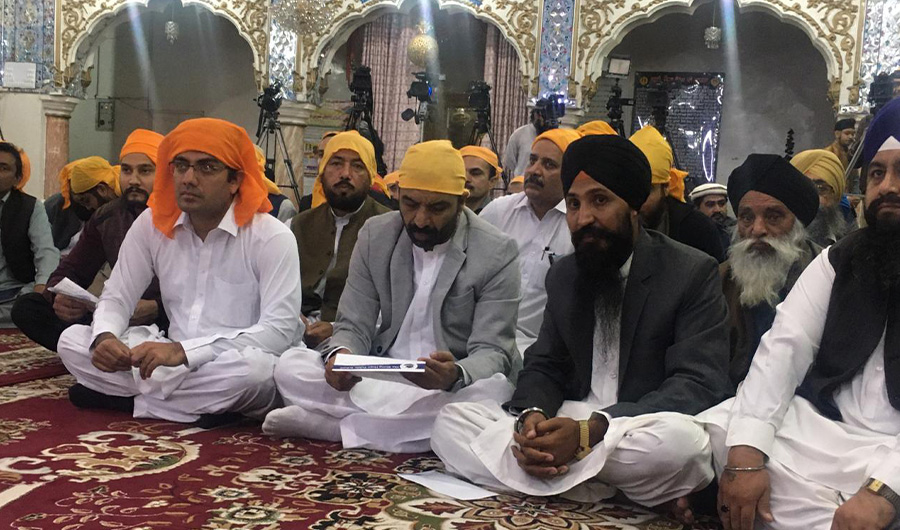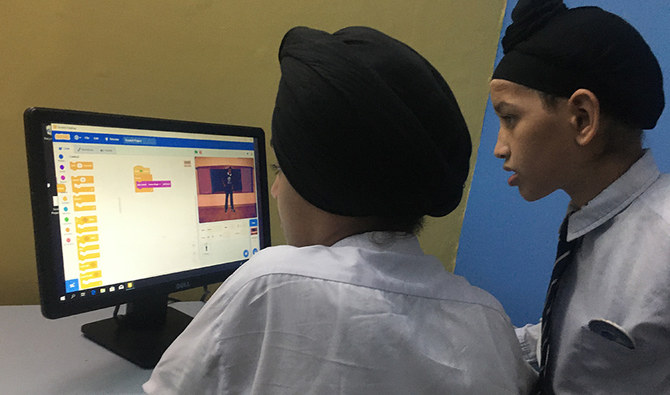PESHAWAR: A model Sikh school established in the heart of Peshawar City is the latest example of interreligious unity in Khyber Pakhtunkhwa.
Located near Peshawar's Mohalla Jogan Shah neighborhood, inside the historic walled city, the school is the first of its kind in the province. Run by the Sikh community, it has a Muslim principal and staff members. This pluralist and inclusive approach informs the foundation of the Rising Hope School, as levels of trust between Muslims and Sikhs are high in this area.

With the support of KP government Baba Guru Nanak School of Steam has inaugurated in Peshawar, 15 November, 2019. Inside Gurdawara Bhai Joga Singh, Sikh Community elders welcome government officials on 15 November 2019. (AN)
Bilal Ahmad, a watchman in his mid-fifties, warmly welcomes arriving students and chats with them. He says that guarding the children gives him solace. When the school was established in 2014, the security situation in the city was not good, but it did not dispirit Ahmad, who says he is there for the sake of education and protecting those who receive it. “I am here to protect the beacon of education and kids from any barbarism,” he said, explaining that the school represents “the true Pakistan,” where students of different faiths and backgrounds come to learn. Keeping them safe is to him “safeguarding the nation.”
The Rising Hope, is the only Sikh community-based school in Khyber Pakhtunkhwa, where 300 Sikh and Muslims pupils study up to the eighth grade. As the school building is already too small to accommodate them all, the provincial government has allocated Rs 20 million to construct a new one.
On Friday, November 15, while inaugurating Baba Guru Nanak School of Steam, a computer academy at the school, the adviser on elementary and secondary education to the Khyber Pakhtunkhwa (KP) chief minister, Zia Ullah Bangash, told Arab News that works on the building will start soon and there are plans to expand it to the grade 10 level.

Government representatives with Sikh elders inside Gurdawara Bhai Joga Singh on 15, November, 2019. (AN)
The special assistant to the chief minister on science and information technology, Kamran Khan Bangash, said the government had provided an IT teacher, furnished computer classrooms, and will bear all the expenses related to running IT classes. He added that the purpose of the school is to improve computer literacy to make all members of society able to compete in the international market.
“Our religion and constitution ensure the rights of minorities, and with this objective we are providing equal opportunities to every citizen,” Bangash said.
The development was welcomed by the Sikh community.

Sikh Community elders are with Chief Minister adviser for education Zia Ullah Bangasha and Special Assistant for Information Technology Kamran Khan, 15 November 2019. (AN)
“The Kartarpur Corridor, Baba Guru Nanak University, the Rs 50 coin and now the School of Steam are historical acts and symbols of unity and harmony among all communities,” Gul Charan Singh member of Sikh community said. “This computer academy will change the lives of Sikh students and will also make them able to compete for IT-related jobs in the future. Although the Sikh community is not educated, we play a role in the country’s economy,” he added.
“This is a great long-lasting gift from the KP government on the great occasion of the 250th birth anniversary of Baba Guru Nanak,” Baba Gorpal Singh, an elder of the Sikh community told Arab News. “Now our children will be able to compete in the IT field.”
“Diverse Pakistan is the real image of pluralism and inclusiveness,” Balbeer Singh, a young member of the Sikh community said. “Actually, the inclusion of students of different backgrounds sends a strong message to propagandists outside the borders. Pakistan is our land and we have taken the oath of protecting it and living here till our last breath,” he said.
For centuries, Khyber Pakhtunkhwa has been home to thousands of Sikh families. There are 7,500 adherents of Sikhism in Mohalla Jogan Shah alone.
Harmeet Singh runs his cellphone business in Peshawar without fear, as he also participates in social and cultural events. “I attend the wedding ceremonies of Muslim friends, as I am a part of this society and follow its culture,” he told Arab News. “Together with Muslims, we arrange blood donations, free medical camps, and take part in other social activities.”
















